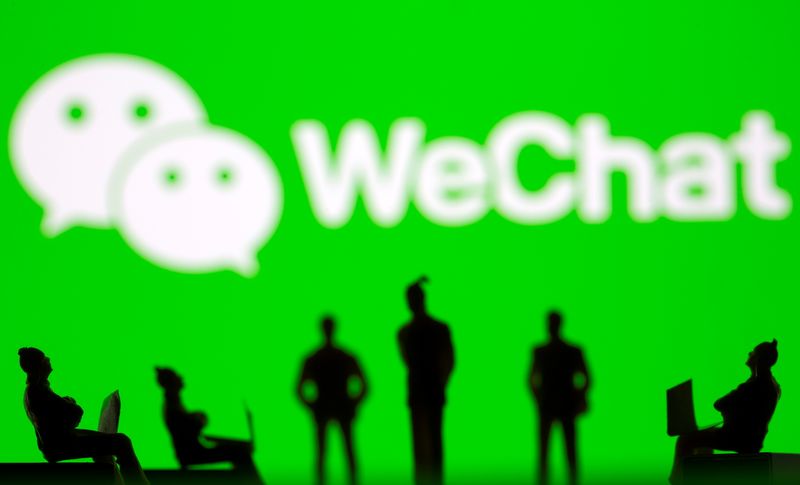HONG KONG (Reuters) -Chinese tech giant Tencent’s WeChat social media platform has deleted dozens of LGBT accounts run by university students, saying some had broken rules on information on the internet, sparking fear of a crackdown on gay content online.
Members of several LGBT groups told Reuters that access to their accounts was blocked late on Tuesday and they later discovered that all of their content had been deleted.
“Many of us suffered at the same time,” said the account manager of one group who declined to be identified due to the sensitivity of the issue.
“They censored us without any warning. All of us have been wiped out.”
Attempts by Reuters to access some accounts were met with a notice from WeChat saying the groups “had violated regulations on the management of accounts offering public information service on the Chinese internet”.
Other accounts did not show up in search results.
WeChat did not immediately respond to emailed questions.
Homosexuality was classified as a mental disorder in China until 2001, when it became legal. However, this year, a court upheld a university’s description of homosexuality as a “psychological disorder”.
The LGBT community has repeatedly found itself falling foul of censors. The Cyberspace Administration of China recently pledged to clean up the internet to protect minors and crack down on social media groups deemed a “bad influence”.
“Authorities have been tightening the space available for LGBT advocacy and civil society generally. This is another turning of the screw,” said Darius Longarino, a senior fellow at Yale Law School’s Paul Tsai’s China Center, who focuses on LGBT rights and gender equality.
The loyalty of LGBT university groups to the government and Communist Party was discussed in meeting in May between student groups and university representatives of the Communist Youth League – a department in charge of student affairs run by the Chinese Communist Party, according to three sources with knowledge of the matter.
The sources declined to be identified or say at which universities the meetings took place but said LGBT student groups were asked if they were anti-Party or anti-China, and whether any of their funds had originated from abroad.
“We explained that our LGBT education work was within campus only,” one university student told Reuters. “After our meeting in May we were dismantled.”
LGBT student groups traditionally do not get the support of university authorities in their work to raise awareness of the community, even though they are not banned outright.
(Reporting by Pak YiuEditing by Robert Birsel)

























